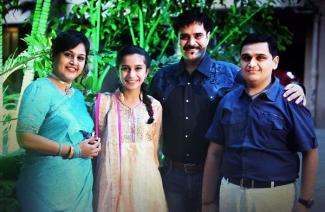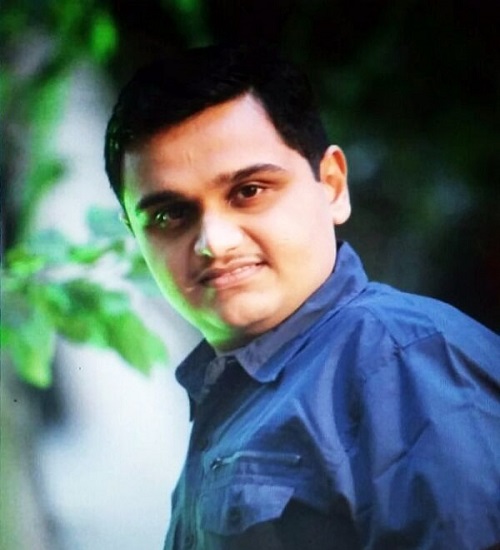
Parents of Vinamra, who has mild autism disorder, always made it a point to remember that their son can lead a happy, fulfilled life if they channelized his energies well. Mother Rima Ved recounts how she and her husband tirelessly prepared their son for adulthood and independence.
My son, Vinamra, has autism. He is 21-year-old, all grown up, capable and independent today. But there was a time, nearly a decade ago, when I didn’t know how to raise him. I realized he was different from other kids when he was about two. He was extremely restless, inattentive and impatient. He was just not able to sit still and focus on any activity. More so, he was not speaking at all. He uttered his first words at age four.
My husband and I were extremely worried about him. He was our first child and we doted on him beyond words. We took him to various doctors most of whom said it was behavioural issue and would improve with time. Unfortunately, those days awareness about autism or other neuro behavioural disorders was not extensive. As he grew older and did not improve, doctors diagnosed his condition as attention deficit hyperactive disorder (ADHD), a disorder essentially marked by inattention and/or hyperactivity-impulsivity that interferes with functioning or development. Some declared him a slow learner and offered little solutions. It is only now that there is greater understanding, acceptability, even facilities and opportunities for people with autism. Earlier, they would be all clubbed together as Mentally Retarded.
It took us a long time for us to accept that Vinamra was differently abled, that he had mild autism disorder. Obviously we were shocked and totally broken. But we realized that the sooner we came to terms with it, the better it would be for him and all those around him. Although he has a lower degree of classic symptoms, like social interaction difficulties or communications challenges, we felt he would be a misfit in a formal, conventional school. Thus we decided to keep him at home and raise him to the best of our ability.
Being an energetic child, our first effort was to keep Vinamra busy and preoccupied. We enrolled him for swimming. I think that was one of our good decisions. Swimming really helped him focus and stay afloat. We noticed he was very happy in the pool and better behaved after the strenuous exercise. Then I got him involved with art and craft, colouring and cutting. I discovered that he was a strong visual learner and once he was shown something, he could replicate amazingly. He was particularly good at making things and working with objects. He could figure out for himself the Pogo Mad Art and Craft Book and would make amazing objects. He would constantly surprise me with his creativity. I taught him to make photo frames and folders, and they would turn out so beautiful and perfect that I began using them as gifts. For Diwali, we would paint diyas and lamps and have a little exhibition at home. I realized he was benefiting greatly from doing projects and working with objects.
By the time Vinamra turned 11, he developed a huge love for food. I thought it would be useful to introduce him to the kitchen and cooking. Initially, I would make him do just basic work like taking out the vegetables from the refrigerator, cleaning and washing them. Gradually, I taught him to chop vegetables. He has great hand-eye coordination, he would chop the vegetables symmetrically and in whichever shape I wanted. If I told him to cut the onions finely, he would really make them small quite like a pro.The next step was introducing him to the fire and cooking his favourite dishes. He loves fried rice. When we have guests at home, and sometimes when he makes his dish and his cooking is appreciated, he is over the moon.
As a teenager, I also enrolled him for dance classes. There, too, he performed exceedingly well because he has a photogenic memory. He would remember the steps much faster than others. He remembers the names of doctors, people, and incidents vividly. Often we rely on his recall capacity to hark back to anecdotes. Thanks to his quick grasping power, Vinamra knows four languages. While is fluent in Gujarati and English, he can sight read in Marathi and Gujarati.
We also appointed a personal coach for him who taught him yoga. He has mastered a wide range of asanas and his body is flexible. He has also learnt karate. You teach him anything and he learns. He is a very high functioning child. He has gone for 10 day camps with his coach and has been perfectly okay.
I have trained him to do his chores. He goes for his own haircut. He goes to the shop to pick small household provisions. The idea is to make him independent. He should be able to do as much work on his own. But I fear he cannot be left alone. I am very protective about him. I feel he may be misunderstood by strangers, or may throw a tantrum or have an anger outburst. Thankfully, he has always been in control outside. His teachers always compliment him in his good behaviour. I think somewhere deep inside he realizes his responsibility.
His school has been extremely encouraging and supportive. It is a school for children with special needs. They have an academic department for weak students and they have an inclusive education curriculum and vocational classes for the rest of the children needing special care. The best part about the institute is that they pay attention to the skills and interest of each child and provide opportunities to hone them. They network with other organizations to expose their kids to the world outside. For instance, Vinamra and some his other schoolmates were sent for a 6 months internship to a five star hotel for work experience. He was doing the flower arrangement for a while and then he was in the laundry department where he was put in charge of folding, ironing and sorting clothes. I believe he fulfils his tasks quite professionally.
All through Vinamra’s upbringing, both my husband and I have been particular to keep his interest and skills in mind, before engaging him in an activity. We have tried to keep pace with his learning and always focussed on what he can do rather than what he can’t.







